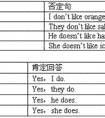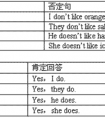读下列句子,选择正确的单词填在横线上。1.Wealways __________ (clean, cleans)thehouseforSpringFestival.2.YesterdayI__________ (washed, wash)thefloor.3.Thisres-六年级英语
He usually gets up at 6:00,but this week he is getting up at 7:00. (现阶段正在进行,但说话时不一定在起床)
3.现在进行时的特殊意义
-表示主观打算常用于 go,come,leave,start,begin 等,位移、趋向动词。
How long are you staying here (准备停留)
-表示眼前刚过去的语意即“话音刚落”,适用于tell,say,talk,discuss ….
You don’t believe it You know I’m telling the truth.
-表示安慰、关心、喜欢、讨厌等感情色彩。
He is always making noises in class. (讨厌)
-在条件、时间、让步状语从句中表示将来正在进行。
Don’t bother him if he is reading this time tomorrow.
二、严格区分进行时与一般时的语义
1.持续动词的一般时表持续情况,经常性,习惯性行为或客观存在的事实,进行时表暂时性或有限时刻的持续。
2.短暂动词的一般时叙述事实,特征,能力而短暂动作进行时描述反复发生,即将发生或刚开始行为。
3.短暂动词和静态动词一般时表示实际情况客观状态、结果、特征、特性,进行时表未完成含开始或渐进之意。
The bus stops. (车停了-事实)
The bus is stopping. (渐渐停下来)
I love the job. (静态事实)
I am loving the job. ( 渐渐爱上了)
4.come,go,leave,start,return,move,reach,sail,fall 等一般时态表客观规定计划,进行时表主观打算推测。
Flight 254 leaves at 5:30. (表客观规定计划)
The plane is taking off an hour later.(主观判断)
5.现在进行时带always,continually, constantly, for ever等频率副词表感情色彩,一般现在时则没有此用法。
现在进行时的构成是:
主语+be+v.ing〔现在分词〕形式
|
人称 |
构成形式 |
|
第一人称单数 |
I+am+ing. |
|
第一人称复数 |
We+are+ing. |
|
第二人称单(复)数 |
You+are+ing |
|
第三人称单数 |
He(She,it)+is+ing |
|
第三人称复数 |
They+are+ing |
|
句式 |
|
|
肯定句 |
主语+be(is/am/are)+现在分词 |
|
否定句 |
主语+be(is/am/are)+not+现在分词 |
|
一般疑问句 |
(is/am/are)+主语+现在分词 |
|
be特殊疑问句 |
特殊疑问词+相应be动词+主语+现在分词+Sth? |
现在分词的构成:
|
词 |
构成 |
举例 | |
|
一般情况 |
词尾+ing |
动词原形 |
现在分词 |
|
go |
going | ||
|
以不发音字母e结尾 |
去e,再加ing |
write |
writing |
|
以重读闭音节结尾,且末尾只有一个辅以字母 |
双写词尾+ing |
run |
running |
|
以ie结尾的重读闭音节 |
变ie为y+ing |
die lie |
dying lying |
|
结尾为c且c读作/k/时 |
在结尾加k再加ing |
picnic | picnicking |
考点名称:一般过去时,动词过去式
一般过去时:
表示过去某个时间里发生的动作或状态;过去习惯性、经常性的动作、行为;过去主语所具备的能力和性格。
be动词在第一人称是单数和第三人称是单数是用was,其余用were。
a. 表示在过去时间里所发生的动作或存在的状态,常与表示过去的时间状语。
yesterday(昨天)、last week (上星期)、an hour ago(一小时前)等连用。
例:I went to the zoo with my father last Sunday. 上周日我和我爸爸去动物园了。
They weren't able to come because they were so busy.他太忙了,所以去不了。
b. 表示在过去一段时间里,经常性或习惯性的动作或状态。
例:My brother watched the World Cup every day last month.上个月哥哥每天都看世界杯比赛。- 一般过去时句法结构:
肯定形式
主语+动词过去式+其他
例句:She often came to help us in those days.
否定形式
①was/were+not;②在行为动词前加didn't,同时还原行为动词
例句:I didn't know you like coffee
一般疑问句
①Did+主语+do+其他? ②Was\Were+主语+表语?
例句:Did I do that?
用表格整理如下:肯定式 疑问式 否定式 疑问否定式 Iworked Did I work? I did not work Did I not work? He(She,It) worked Did he(she,it) work? He(she,it) did not work Did he(she,it) notwork? We worked Did we work? We did not work Did we not work? You worked Did you work? You did not work Did you not work? They worked Did they work? They did not work Did they not work?
结构句型:
1.一般句子
I watched TV last night.
2.一般疑问句
Did you watch TV last night?
3.there be 句型
There was an apple on the table last night.
Was there an apple on the table last night - 一般过去时用法口诀:
一般过去时并不难,过去动作、状态记心间。
动词要用过去式,时间状语句末站。
否定句很简单,didn't 站在动原前,其它部分不要变。
一般疑问句也好变,did放在句子前,主语、动原、其它部分依次站。
特殊疑问句也简单,疑问词加一般疑问句记心间。
最后一条请注意,动词过去式要牢记! - 过去式和过去分词的构成表:




![We ____________together. [ ]A. read a bookB. sleep-一年级英语](http://www.00-edu.com/d/file/ks/4/1/60/2019-08-28/smallea4b9832081df346c35e7fe937dd76101566947664.gif)
![What's he doing? He's ___________. [ ]A. readingB. drawing-四年级英语](http://www.00-edu.com/d/file/ks/4/1/60/2019-08-28/small07eb195a0f249b46b2d76d31ab9e28261566947675.jpg)
